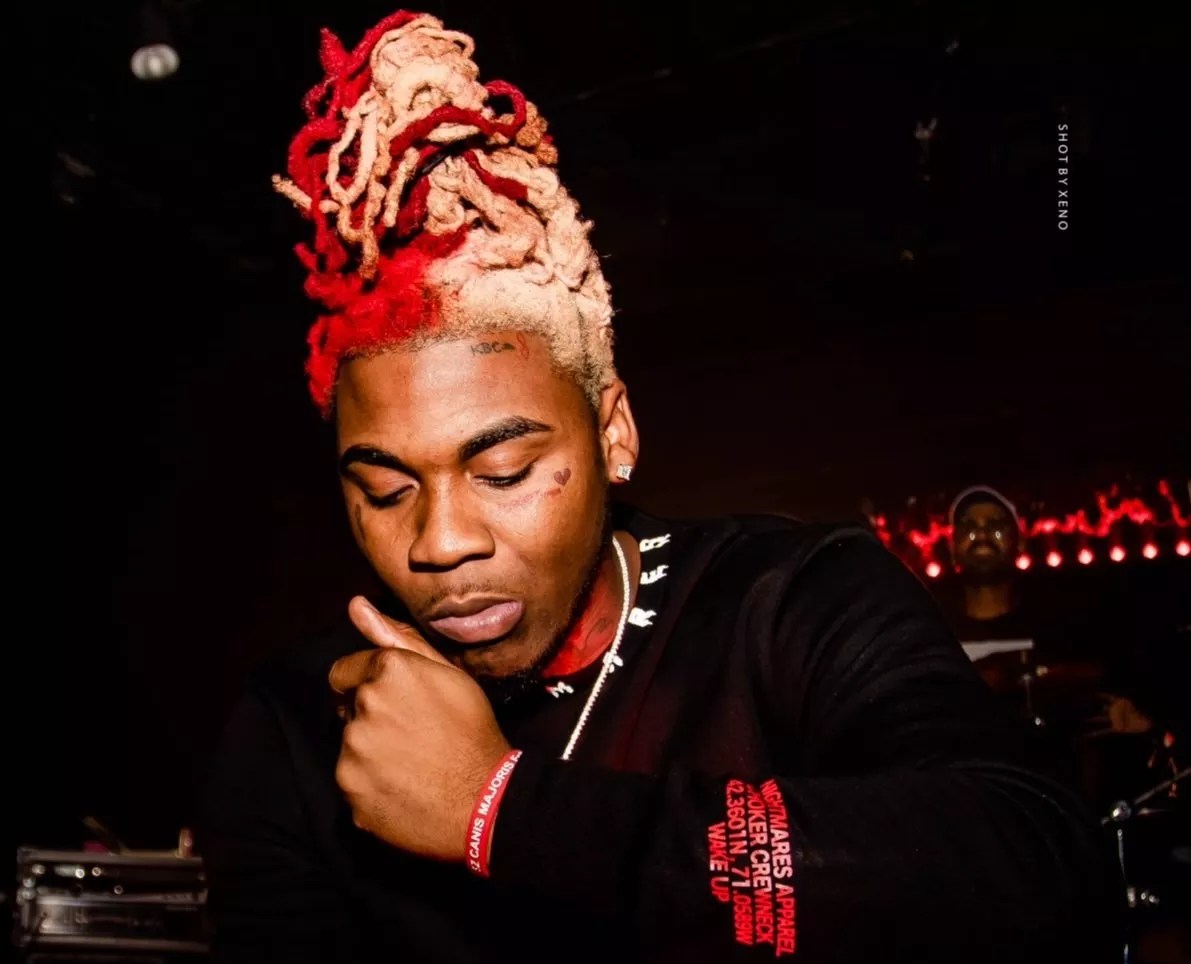
Photo by shotbyxeno

Audio By Carbonatix
Before he made music for a living, Splash Zanotti was in full-on survival mode, hustling the streets and just trying to make it in “this fucked-up world,” he says. Homeless and without a family to lean on, he stayed in Airbnbs and hotels with a host of creative types who became like brothers to him. They also became some of the biggest names in South Florida’s renaissance of hardcore rap – XXXTentacion, Smokepurpp, Lil Pump, and Ski Mask the Slump God.
“We were around each other when we literally had nothing,” he says. “That’s how we built such a family bond. It was deeper than music. That’s why you don’t see me on a hundred songs with them because it wasn’t about the music, it was about the relationship. We created our own family.”
That support system has proven critical for his career. Splash (real name Kejuan Campbell) says he’s been making music his entire life but hadn’t gotten serious about it until two or three years ago, when it became clear that a national spotlight was shining on Broward County’s underground hip-hop scene thanks in large part to the late XXXTentacion.
“Nowadays, everybody wants a piece of that weird, mysterious underground rap,” he says. “But before [XXXTentacion], there was no light on those types of artists. Everybody felt like, if you aren’t in the music industry, you’re nobody… We created a foundation for people like us – weirdos from the underground who watch anime and play video games and shit. With that platform being built, that’s where everything started to get serious. I’m out here performing songs on the road and I have a whole bunch of people screaming my lyrics now.”
Splash Zanotti’s sound ranges from bubbly Auto-Tuned R&B to angry, speaker-busting lo-fi rap. At his most heated, he raps with vein-popping rage against the mainstream music industry (let’s go ahead and call it “the machine”). His loathing is based on his personal experiences, both on the streets and as a musician, of being an outsider looking into a gated community.
“I represent the rejects who always get denied,” he says. “It’s frustrating seeing the community spoon-feed the same type of shit, being afraid of venturing out into something new.”
For example, he describes a recent encounter with a representative from “a pretty big platform” that struck him as highly disingenuous, though he wouldn’t name names.
“They asked me to come on their show and send them some music,” Campbell recounts. “I send them some music; they tell me they’ll listen and give me feedback. I’m waiting on the feedback. When they finally hit me back, they tell me I need to make music people can actually vibe to, music they can put on in their cars and bump. I took it as constructive criticism until I saw that they didn’t even read the email. It’s like, you’ve never heard my song, but you’re quick to give me fake constructive criticism? That’s frustrating.”
Campbell is moving forward without the machine’s help. This summer, he’ll release a new EP – Kame 2 Far 2 Give Up Now – and plans to follow it up with his first full-length, which is set to be produced by Murda Beatz.
Having come from nothing, Campbell takes nothing for granted. Every time he steps onstage or in the booth, it’s an opportunity to release his long-felt frustration and connect with other people who feel the same way. Finally, he’s being heard.
“Growing up with the world against me, being homeless, broke, hungry – all of that shit feeds into the rage,” he says. “When you have music you believe in and fans that believe in your music, but you’re still struggling, that shit really fucks with you.”